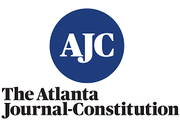
Grabowski addressed how the U.S. legal system assesses whether statements are protected by the First Amendment or not. "It comes down to a few different things: was it a true threat, or was it something he said in jest?” said the Adelphi University internet law and digital ethics professor. “If the statement can be reasonably interpreted by people as a joke, then it might not be considered a true threat. But if a court interprets that a message was intentionally threatening, it is treated as a threat regardless of whether the messenger has the means to carry the act out.”

 RSS Feed
RSS Feed